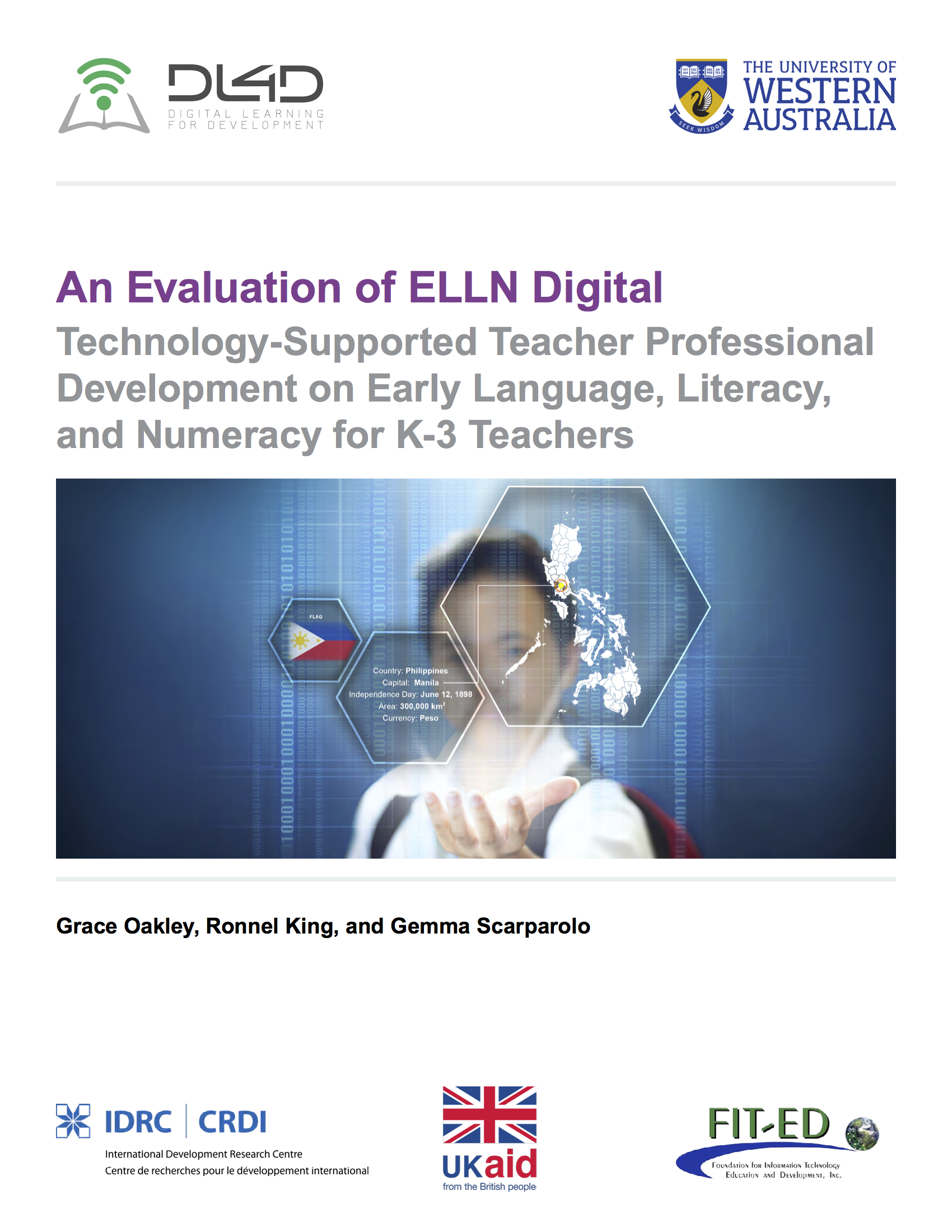An Evaluation of ELLN Digital: Technology-Supported Teacher Professional Development on Early Language, Literacy, and Numeracy for K-3 Teachers
Abstract
An Evaluation of ELLN Digital: Technology-Supported Teacher Professional Development on Early Language, Literacy, and Numeracy for K-3 Teachers
An Evaluation of ELLN Digital: Technology-Supported Teacher Professional Development on Early Language, Literacy, and Numeracy for K-3 Teachers

This report describes a mixed methods study of the Early Language, Literacy, and Numeracy Digital (ELLN Digital) teacher professional development (TPD) program pilot in the Philippines. The pilot took place in 2016-2017, implemented by the Foundation for Information Technology Education and Development (FIT-ED) in partnership with the Philippine Department of Education and funded by USAID through the Philippine-American Fund. This study aimed to evaluate the effectiveness of the TPD, a blended learning version of the established face-to-face ELLN course. Data were collected through multiple methods, including an end-of-course survey; pre- and post-course assessments of teacher pedagogical and content knowledge, and teacher strengths and needs; interviews, focus group discussions, and observations in six case study schools. Qualitative findings and an end-of-course survey indicate that participating teachers and school principals were positive about the course, its design, and content. They were generally of the opinion that valuable learning had occurred and had impacted on teaching practice and on children’s learning. Teachers were generally positive about the blended learning model, which combined a community of practice (the “Learning Action Cell” or LAC) with a CD courseware intended to be studied prior to LAC meetings in a flexible, self-paced learning mode. Quantitative findings on teacher learning indicate that the pedagogical and content knowledge of participating teachers were significantly better in the post-test overall, with some variation between the subgroups of teachers.
The evaluation was jointly funded by DL4D and USAID’s Philippine-American Fund.

